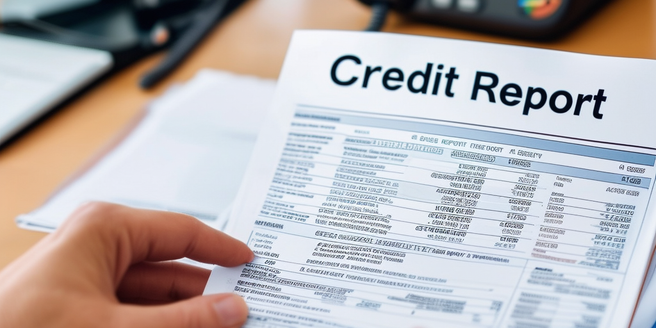Understanding Common Types of Credit Report Errors
Credit reports can contain several types of errors that may impact your financial standing. Common errors include incorrect personal information, such as misspelled names or wrong addresses. Another frequent issue is inaccurate account information, like incorrectly reported payments or wrong balances. This can be particularly frustrating when you know you’ve made your payments on time. Identity theft can also lead to erroneous accounts or charges appearing on your report. It is essential to regularly review your credit report to identify and correct these mistakes promptly. Lastly, outdated information, which should have been removed after a certain period, can still linger and affect your credit score. Understanding these common errors is crucial as a first step to rectifying them and maintaining a healthy credit profile.
Gathering Your Credit Reports from Major Bureaus
To tackle credit report errors, obtain your credit reports from the three major bureaus: Experian, Equifax, and TransUnion. Each bureau may report different information, so it’s vital to review all three reports. You are entitled to one free report per year from each bureau through AnnualCreditReport.com. During this process, ensure that all personal and financial details are correct. Remember, incorrect details can negatively impact your credit score. Scrutinize each entry for accuracy and consistency, looking for discrepancies among the reports. If you find any errors, immediately report them to the respective bureau for correction. This proactive approach can save you from potential future financial issues. Having up-to-date and accurate credit reports is essential for identifying and disputing any inaccuracies.
Identifying Inaccuracies and Questionable Items
Once you have your credit reports, the next step is to identify inaccuracies and questionable items. Look for errors in personal information, such as names, addresses, and Social Security numbers. Obtaining all three credit reports from the major bureaus will provide a comprehensive view of your credit status. Check the account information meticulously to ensure that the balances, payment history, and account status are correct. Thorough examination of each section will help you catch even minor mistakes. Be especially vigilant for fraudulent accounts and charges that may indicate identity theft. If you spot any mistakes, take immediate action. Prompt correction of these errors can prevent future complications. It’s important to document any discrepancies and gather evidence to support your claims. Accurate identification of errors will streamline the dispute process.
Filing Disputes with Credit Bureaus Effectively
After identifying errors on your credit report, the next step is to file disputes with the credit bureaus. These errors can have a significant impact on your credit score if left unaddressed. You can submit disputes online, by mail, or over the phone. When filing a dispute, provide a clear description of each error, along with any supporting documents. Make sure to include copies of any relevant statements or reports. It’s also helpful to highlight the errors directly on the copies provided. The credit bureaus are required to investigate your claims, usually within 30 days. Keep a record of all your correspondence and follow up if necessary. Effective communication and thorough documentation can significantly increase the likelihood of a successful dispute outcome.
Monitoring Your Credit Report Post-Dispute Process
Once you have filed disputes and the bureaus have resolved any inaccuracies, it is crucial to monitor your credit report continuously. Checking your report regularly helps you to ensure that corrections have been made and that no new errors have appeared. Take advantage of credit monitoring services that alert you to significant changes or new inquiries on your report. These services can provide peace of mind and actionable insights. Additionally, reviewing your accounts for any suspicious activities can be an extra safeguard. Ongoing vigilance will help you maintain an accurate credit profile and protect against potential fraud or identity theft in the future. Staying proactive in monitoring your credit is key to long-term financial health.


